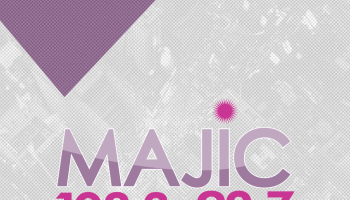What are some symptoms of a heart attack or palpitations?
A heart attack is a term that typically means ‘myocardial infarction’ or blockage of blood reaching the heart. To some people ‘heart attack,’ particularly ‘massive heart attack’ means sudden cardiac arrest (death). The symptoms of a heart attack are:
· Chest pain, often radiating to the left jaw or arm (often an oppressive sensation like a squeezing)
· Shortness of breath
· Dizziness like you are going to faint
· Nausea
· Breaking out in a ‘cold sweat’ (diaphoresis)
· Undue fatigue
· Palpitations (fluttering in the heart from an abnormal heart beat)
These symptoms can occur in any combination and should receive prompt medical evaluation in an Emergency Room. If you are having a heart attack, the longer you wait, the more heart damage is being done. The combination of palpitations and dizziness is drastic and requires IMMEDIATE attention-it could be the only warning a person receives for a ‘massive heart attack.’
My mom is a 57-year-old smoker. She has had blood clots in her lungs. Is that from smoking or is it a sign of heart problems?
Smoking makes a person’s blood clot much more easily. People should not smoke! People with blood clots should not smoke!! People who have lung problems, like blood clots, should not smoke!!! Your mother should stop smoking immediately!!!! Although quitting is easier said than done, there have been advances in medical therapy to help people break the habit. Many hospitals have smoking cessation classes and tobacco use (and quitting, perhaps with medication assistance) can be addressed by a primary care provider.
I am a 31-year-old woman, 5’2 and 106 pounds. I don’t smoke and work out regularly. I have frequent PVCs (premature ventricular contractions) and PACs (premature atrial contractions) sometimes in couplets and triplets.
After some testing, it shows that I have leaky mitral and atrial valves. Are these things related and how serious should I take them? My cardiologist doesn’t seem at all worried or interested. Is this something I need to go deeper into? My mother died at the age of 53 due to heart disease.
Mitral valve problems are commonly seen and often associated with the symptoms you describe. Your doctor apparently believes you have a mild disorder that does not warrant particular treatment at this time. If this is true, then often infective endocarditis prophylaxis (antibiotics before dental work, etc) is recommended. It is also recommended to watch (echocardiogram) the valve every 5 years to assure the condition has not changed. The palpitation can be problematic but the general dictum is that more harm (sometimes fatal) can be done by treating them than not. A cardiologist specializing in heart rhythm disorders is called an electrophysiologist and your cardiologist can refer you to one for evaluation.
Fast Facts on Heart Disease and Strokes:
- Black women (49%) and Black men (44%) have higher rates of heart disease than White men (37%) and White women (32%).1
- Between the ages of 45 and 64, Black men have a 70% higher risk and Black women have a 50% greater risk of developing heart failure than White men and women.
- The earlier onset of heart failure means higher rates of hospitalization, earlier disability, and higher rates of premature death (death before the age of 65) for Black Americans.
- The annual rate of first heart attacks and first strokes is higher for Black Americans than White Americans.
Source: American Heart Association
Like BlackAmericaWeb.com on Facebook. Follow us on Twitter.
Get Well Wednesday: Dr. Underwood Answers Your Questions On Heart Health And More was originally published on blackamericaweb.com















